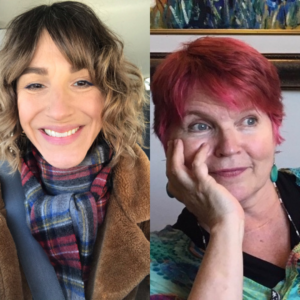The ongoing national reckoning with our racial history and present has generated pushback that makes it particularly challenging — and all the more essential — to engage in discussions about race with children. This is particularly true for communities in which these topics are rarely addressed or where responses have become inflamed. We’ll look at what the research tells us about children’s conceptions and attitudes about race, and about how we can support children to develop healthy racial identities and the ability to interact positively across differences and to help build a future with more justice, equity, and inclusion for all —with the aid of picture books.
Part One: The Data
When and how do children learn about race and how do racial identities, attitudes, and behaviors form?
Author-illustrator Anne Sibley O’Brien and researcher Dr. Andrea Breau will share information on when and how children begin to notice and make sense of social difference (e.g. race, gender, sexuality, religion, class), how racial identity and unconscious bias develop, and what this tells us about how to approach conversations on race. There will be time for participants to reflect on and ask questions about how these patterns have shaped our own identities and are shaping those of the children in our lives.

